Eco-Parenting—Easy Tips
Save the planet and help your little one have a healthier start in life.
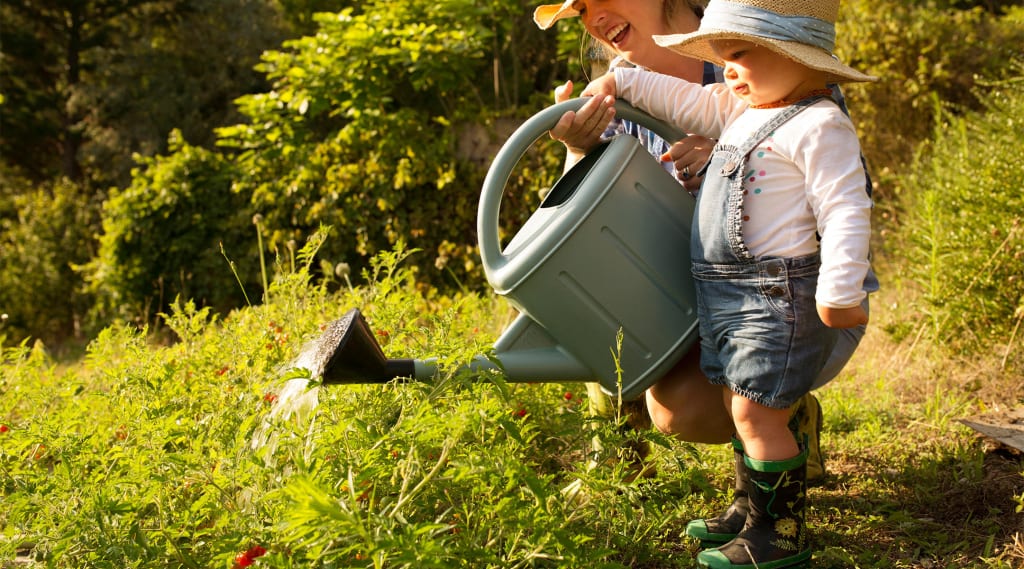
In the past few years, my obsession with health and wellness has increased tenfold. I trained to teach yoga five years ago and started living an entirely vegan lifestyle. I began to look into the things I put on my skin and in my body, from medicine to body lotion. I wanted to be as natural as possible for both my own health and that of the planet. When I fell pregnant with my little boy, my interest in a more eco-friendly lifestyle increased (much to the dismay of my partner, who goes along with it, but would probably rather I wasn't so hellbent on saving the world one cloth nappy and vegan dinner at a time).
Saving the planet has always been high on my priority list; I mean, not me personally, but the overwhelming amount of things that we as a species can do to clean up the mess we've made of the world we live in.
It is no secret that climate change is a very real and imminent threat to our world and its very survival. To put it dramatically, and in plain English, if we don't get our shit together, we will singlehandedly wipe our own species off the face of the earth.
You CAN make a difference, because every single person that does make a difference is one less person contributing to the destruction of the planet. I'm not here to preach or point fingers, but rather to offer some simple tips on how to raise your child in an eco-friendly way that will not only benefit the planet as a whole, but will also help with yours and your little one's health!
Cloth Nappies
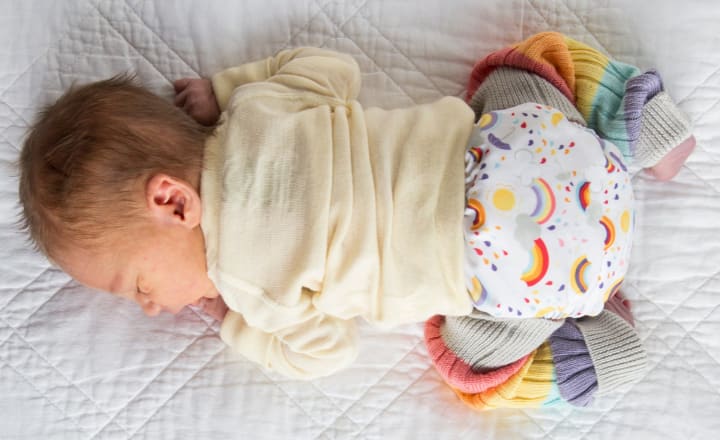
Source: GroVia
Always a controversial topic. In an average lifetime, your baby will use approximately 7,000 nappies. The normal disposable nappies from the likes of Pampers and Huggies can take up to 500 years to decompose. Not only is this HORRIBLE for the planet, but anything that is that unnatural can't be great for your little one's skin.
Even if you use ONE cloth nappy a day, you would be cutting the amount of nappies you use in your baby's life by almost 1,000. I use Alva Baby and Bambino Mio cloth nappies, but there are many, many great brands out there. They are becoming more readily available, too; just last week, I noticed that Aldi and Sainsburys (huge supermarket, chains in the UK) are now stocking Bambino Mio cloth nappies and biodegradable nappies (I'm coming to those).
Cloth nappies can seem daunting at first. Where do we put them? How do we clean them? Won't they stain? I have a nappy bag to put my dirty cloth nappies in and a small pail in the bedroom, and I wash them all together a couple of times a week in the machine. Some of them require pre-rinsing and some don't. I can normally estimate when Roman will poop (sometimes I'm wrong) and so most of the cloth nappies used will just be full of pee. Still, if I'm wrong, I empty them into the toilet and pre-rinse. I put them on a very quick cold wash and air dry them. Sometimes I hand wash. Remember not to use bleach, fabric softener, or nappy cream.
I LOVE my cloth nappies because they feel soft, natural, and less uncomfortable than the usual disposable nappies. They also look super cute, and most companies are making their nappies in a variety of adorable designs and colours.
I can appreciate that cloth nappies are not for everyone, they are more hard work and some may argue that the extra washing isn't hugely ecological. They can also be quite a pricey investment, although brands like Alva Baby are incredibly cheap, and in the long run, purchasing a cloth nappy set will save you money.
For those that aren't jumping on the cloth nappy bandwagon just yet, there are now many brands of biodegradable nappies made from recycled and natural fibres, particularly bamboo. Eco by Naty, Bambo Nature, Beaming Baby, and Mum & You are all more eco-friendly versions of the disposable nappy. They come with a slightly elevated price tag, but you can be safe in the knowledge that what you are putting on your baby is natural and chemical-free, and what you are putting in the bin will decompose happily and quickly.
Walk to School
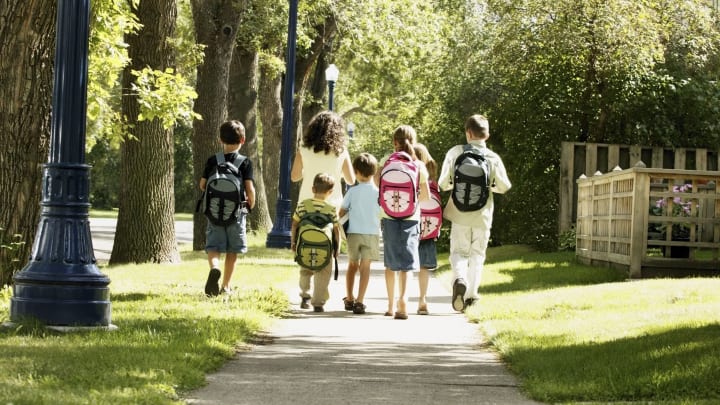
Source: Verywell Family
Unless you live in the middle of nowhere and have no other way of getting your kids to school, do you really need to drive? I don't drive, I don't have a car, we live in central London and just the smell of the air makes me sad. Our house is right on a main road and the dirt build up on the front of the building from car fumes and pollution makes me want to take Roman and run away forever.
The air levels in central London are now at a critical level where the pollution is effecting the health and well-being of the city's residents, particularly young children. Some boroughs are promoting the walk to school scheme. By walking and cycling, you can cut help cut your carbon footprint and reduce the amount of pollution in the air.
Go Vegan
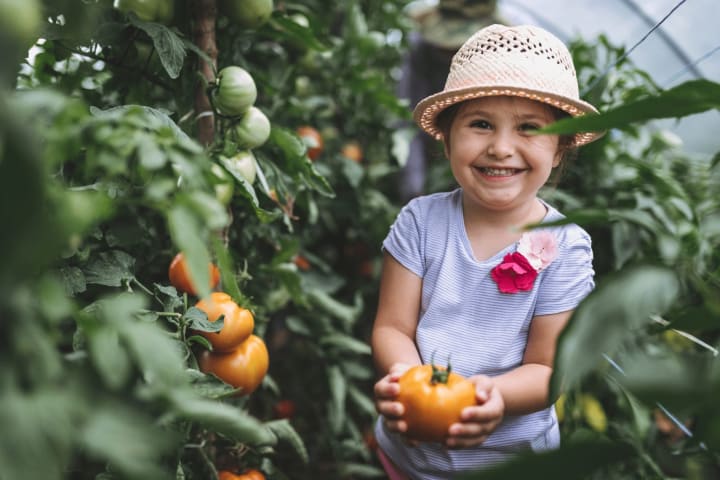
Source: Hackensack Meridian Health
Always a controversial argument—The vegan diet is scientifically proven to be the most eco-friendly diet, and it is also incredibly healthy. HOWEVER, I am not here to push veganism in your face, rather present you with the facts. Scientists have said that if we largely reduce the amount of meat (particularly beef) that we eat, we can begin to reverse climate change.
Being vegan is a hard change for some, but considering what you eat and where you get your food from is a good start. If you feel that giving up meat is too hard for you, maybe try and cut the amount you eat, or only buy from locally sourced, high-quality butchers rather than huge supermarket chains.
A diet rich in fruits, vegetables, and legumes is a healthy start for a child. I plan on raising my little boy on a vegan diet until he is old enough to make his own choice.
Something I, as a vegan, am guilty of, is eating processed vegan junk food when I'm feeling lazy, which is also incredibly bad for the planet. Natural food is best for you, your child, and the planet.
Shop Ethically
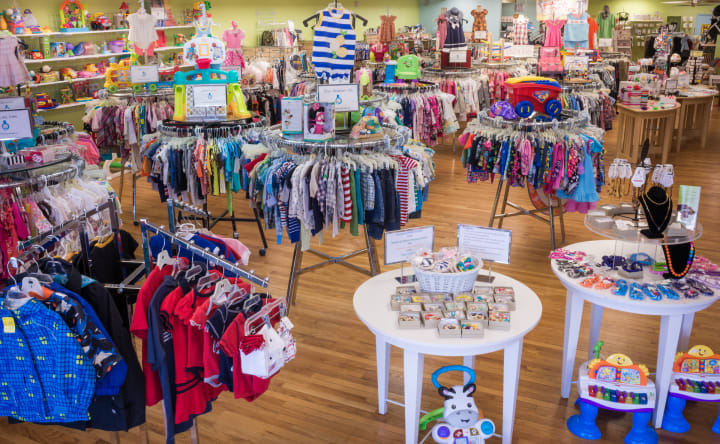
Source: Kangaroo Kids
Think about where your food comes from, where your clothes come from, and where your child's toys come from. It's fine to have a few things from Primark and a couple of garish, annoying toys that distract your child from screaming, but try to look for things that will last and are made from natural fibres or that are handmade. Shop in markets and boutiques. I appreciate that these options can sometimes be expensive, and occasionally you just need something on the day or you don't have a large disposable income, but think about how much you are buying, if you need the extra clothes, toys, or food.... Charity shops often have amazing things for children, and whilst I didn't want to dress my first baby in secondhand clothes from a charity shop, I gratefully accepted hand-me-downs from aunts and cousins in the way of clothes and toys. I buy all my baby's books secondhand. Charity shops often have a great range of children's books for pennies. My mum managed to find a beautiful bassinet and some handmade blankets in a charity shop for when Roman and I visit her.
Go Plastic- and Chemical-Free
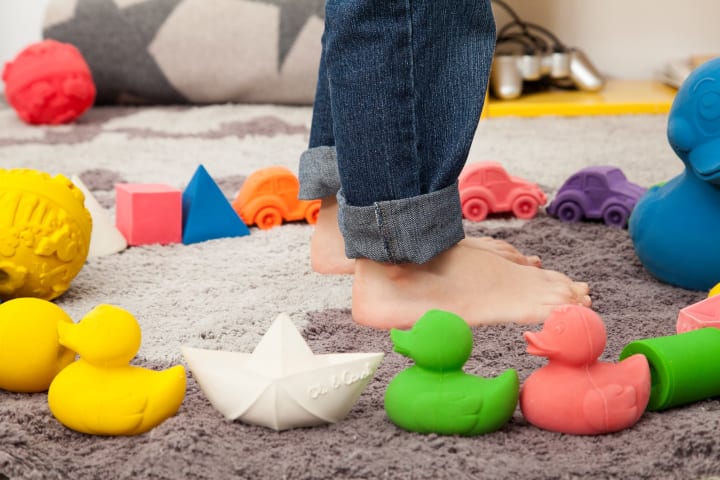
Source: Oli and Carol
This is one of the hardest points on the list. We live in a world where plastic is incredibly dominant, from the packaging of our food to the materials of our everyday objects (hairbrushes, toothbrushes, etc.). Plastic is an entirely man-made fabric and is full of chemicals and all kinds of bad stuff. It is causing a tremendous strain on the environment, from the straws in the ocean to the build-up in landfills. There are now more and more plastic-free options; including, wooden and bamboo toys, or teethers made from natural silicone and rubber. I love the brand Oli and Carol for teethers, orthodontic and natural pacifiers, clothe nappies, bamboo nappies, bamboo bottles, cutlery, cotton, and bamboo clothes. Whilst I understand the switch to a plastic-free lifestyle can be alarming and drastic, every little thing you do can help. Reuse old canvas bags, always have a reusable water bottle and cutlery in your bag, and try and cut down on things you and your child don't necessarily NEED.
Breastfeed
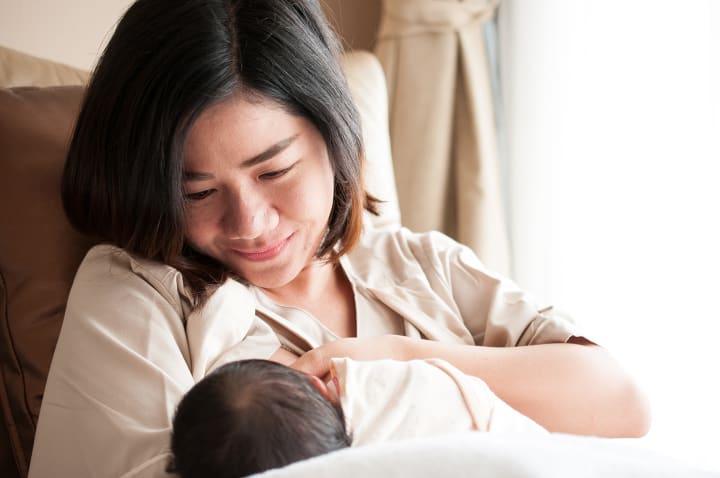
Source: Georgia Coastal Health District
If you can of course. I'm not preaching the "breast is best" mantra, but breastfeeding is the most eco-friendly and healthy, natural start for your baby. I appreciate there are circumstances that make breastfeeding hard, or even impossible, and I'm also not going to say that breastfeeding is cheaper than formula because that would imply that a mother's time, body, and energy are worth nothing. But breastfeeding is not only a way of giving your baby all the nutrients and vitamins they need, it reduces the risk of SIDs, is an incredible bond between mother and baby, reinforces baby's immune system with the mother's, burns calories (although, you will be a million times hungrier), and eliminates food waste from formula.
Waste Less and Recycle More
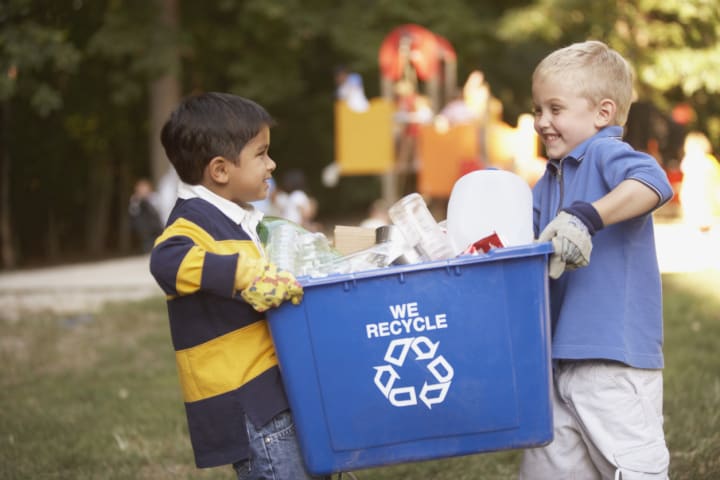
Source: Green and Growing
Food waste really upsets me. When I see people leave plates of food in restaurants, I want to go eat it! When I see people buy huge trolleys worth of food and fill their fridge with so much stuff it wouldn't ever be possible to eat before it goes off, it makes me so sad. Only buy what you need, and don't throw things away the second the sell-by date rolls around because things like vegetables and fruits will keep for a lot longer! The great thing about a vegan diet is that most of the food will keep longer and won't harm you if it isn't particularly well-cooked or past its sell-by date, unlike meat and dairy.
One of the simplest and easiest things you can do as a parent, and just as a human being in general, is to recycle. Recycle EVERYTHING. Have three bins in your kitchen, a recycling bin, a normal bin, and a compost bin for kitchen roll, vegetables, and certain foods (Compost bins are only really useable if you have a garden, so if you don't then you can get a food waste bin in most boroughs of London at least)! And don't stop there! Recycle clothes! Give them to friends, family, charity, or sell them on eBay, Shpock, Gumtree! Same with furniture! And don't just recycle your stuff, buy others' recycled goods! Another man's trash and all that.... Recycle jam jars and make them into glasses or coffee cups, recycle pasta sauce jars and use them to store nuts or grains or dog biscuits! Use your imagination, reusing and up-cycling is one of my favourite eco-tips.
About the Creator
Samantha Bentley
Born and Bred Londoner, Mother to baby Roman and my two pooches, Plant Eater, Yoga and Aerial Teacher + Learner, Music Maker... was once in Game Of Thrones, was once a Penthouse Pet, used to win awards for getting naked.





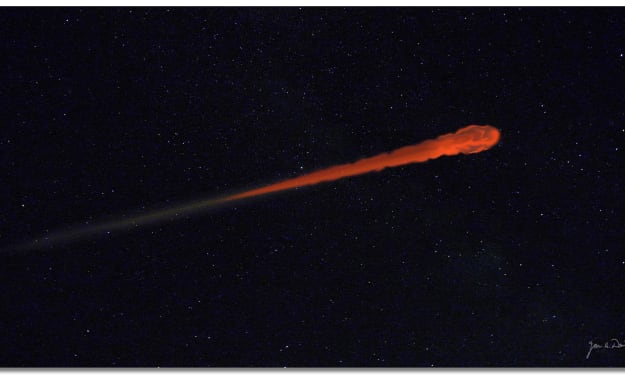
Comments
There are no comments for this story
Be the first to respond and start the conversation.